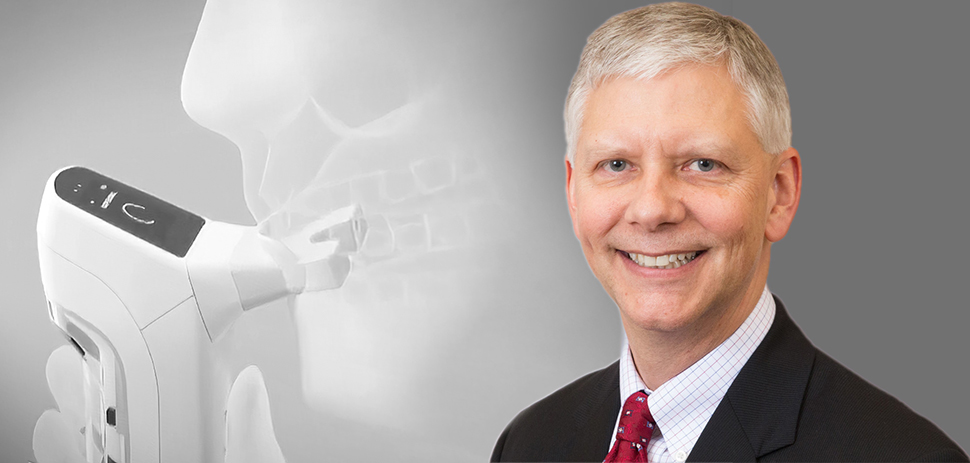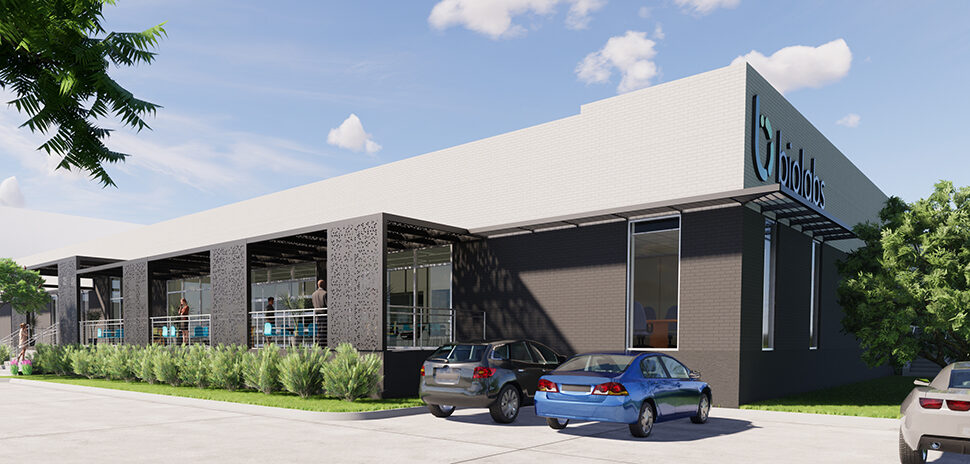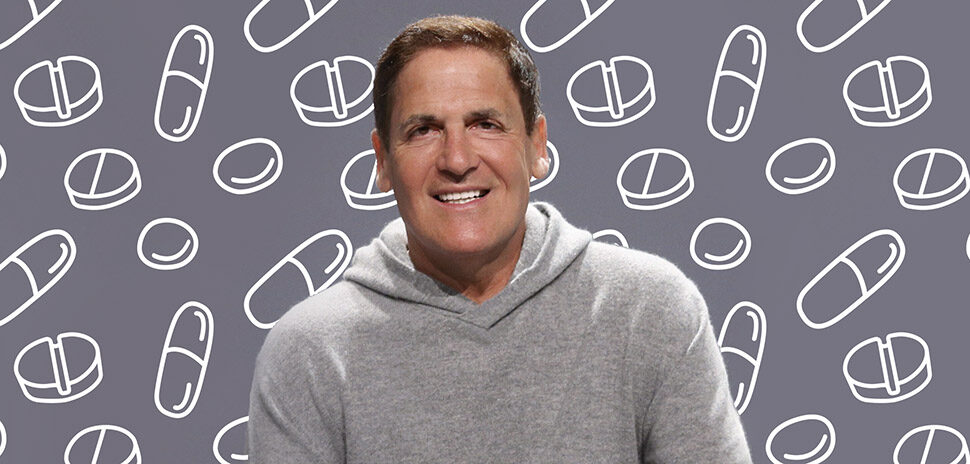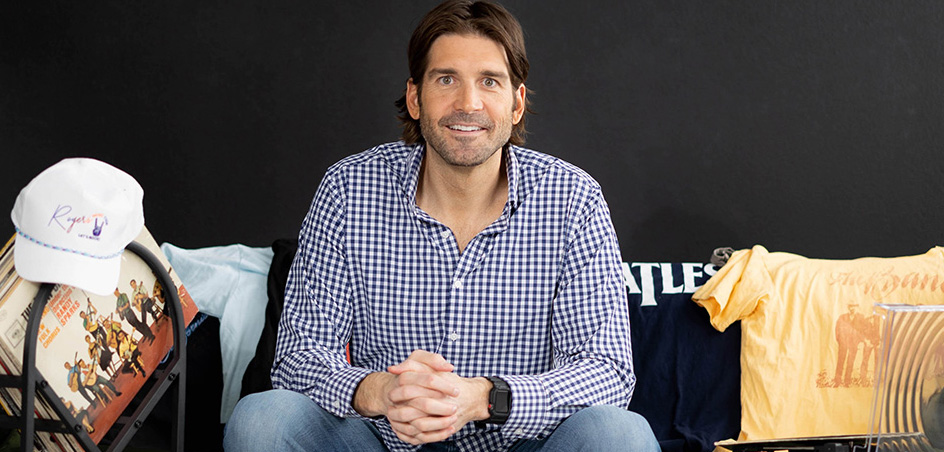Half a million Americans use prescription opioids like methadone to treat addictions to heroin and other opiates. But the process of methadone delivery is so arduous, it can disrupt patients’ lives and keep them from getting their careers and health back on track.
Dallas-based Berkshire Biomedical has a solution for that—and it just got a $266,000 grant from the National Institutes of Health’s National Institute of Drug Abuse to help develop it—with a potential total award of around $2 million if Berkshire’s study is approved for Phase II funding. Berkshire believes their device also has the potential for the administration of a wide range of other drugs, too—including medications for Alzheimer’s disease, epilepsy, ADHD, bipolar disorder, and more.
Berkshire’s COPA System uses biometric authentication
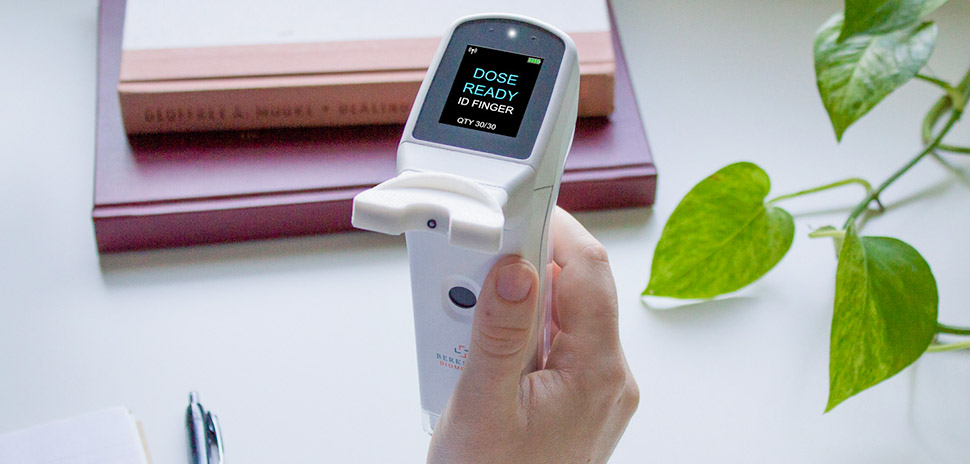
Photo: Berkshire Biomedical
Designed for home use, Berkshire’s Computerized Oral Prescription Administration System lets patients administer methadone themselves, with multiple safeguards in place—including biometric authentication, remote monitoring, and precise and secure dosage delivery.
When taken as prescribed, methadone doesn’t cause patients to feel the high that illicit drugs do. Instead, it lessens the pain of opiate withdrawal and blocks the euphoric effects of everything from heroin to morphine, codeine, and oxycodone. But like other opioids, methadone can be abused—something COPA was designed to prevent.
Current system’s ‘huge costs and burdens’
John Timberlake, president and CEO of Berkshire Biomedical, says his company’s COPA system solves many problems with how methadone is currently administered.
“If you look at the 500,000 patients who are actually utilizing an opioid to get over their opioid use disorder such as methadone, the big challenge here is they have to go to a clinic,” Timberlake said in March at the third annual Life Science Intelligence USA ’22 Emerging Medtech Summit. “The vast majority of them, every single day, wait in line and take this methadone under supervision.”
This leads to huge costs and burdens to the system, Timberlake said—and isn’t serving patients well.
“These are people who want to get over their addiction,” he said. “So they’re trying to hold down a job and trying to get back on their feet. But they’re stuck having to wait in line and sometimes, in rural areas, drive hours to get this medication.”
“More patients would be more willing to go through this treatment if they didn’t have to go to a clinic every single day,” Timberlake added.
Offering secure delivery, compliance, analytics, and more
“We believe COPA is the solution, because COPA focuses on very accurate and precise delivery down to a .25 millimeter accuracy,” Timberlake said. “It also has great compliance and automated control” along with analytics for decision making and remote monitoring.
One key feature: preventing the drug from being abused by others.
“The device will only work with that patient that has been set up with based on their biometrics,” Timberlake said, including their fingerprint and a mouth bite or dentation.”
How COPA works
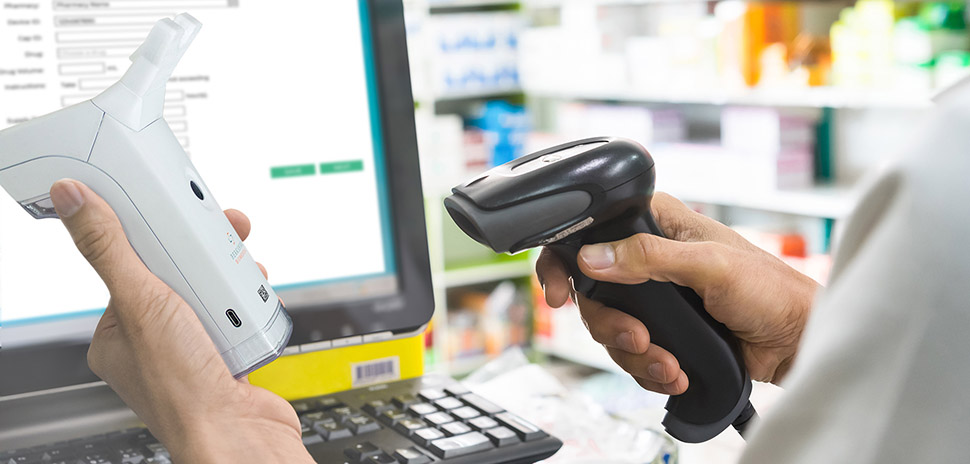
Photo: Berkshire Biomedical
The COPA is a handheld device about the the size of water bottle. First, it’s filled with a prescribed amount of liquid methadone by a licensed pharmacist. A “smart cap” makes the device tamper resistant.
Before the patient takes their prescribed dose of methadone at home, they must first press their thumb on a biometric scanner. Once they’re recognized, they’re asked to place their mouth on the mouthpiece. That too has biometric scanning, recognizing the patients teeth. Only then will the COPA deliver the drug directly onto the patient’s tongue, delivering a precise dose. If the patient removes the device before delivery, it will automatically shut down.
“If we can truly have a tool that allows more patients to take medicine at home for one two three weeks at a time and then come back for counseling, you can dramatically increase the throughput of these systems and actually help these patients maintain their jobs and get back into society,” Timberlake said.
Berkshire’s team includes drug, device, cybersecurity, and regulatory experts
We have a strong team we put together — cross discipline people — drug, medical device, very importantly, cybersecurity experts, regulatory manufacturing. So a very strong team. In conclusion, I think we are really, truly going to create something that’s going to change the way drugs can be delivered.
Driving revenue while helping clinics treat more patients
Timberlake says roughly 20% of methadone patients are currently permitted to take some of the medication home periodically.
“If we could increase that to 40% or 50%, we could dramatically not only drive revenue for us, but very importantly, these clinics could treat two, three times more patients than they’re treating today,” he said.
NIH’s SBIR grant will be spread over two years
Spread over two phases, the NIH funding is a two-phase Fast-Track Small Business Innovation Research grant. It willl help Berkshire further develop its personalized oral drug dispensing technology for methadone treatment for at-home patients recovering from opioid addiction.
In a statement, Timberlake said “there is an even greater critical need for a system capable of accurately and securely dispensing methadone for at home use that incorporates real-time remote monitoring, as the pandemic has limited access to methadone maintenance treatment programs in both urban and rural sections of the U.S.”
“With assistance from this initial Phase I SBIR grant and the subsequent Phase II award, our goal is to complete the development of our enhancements to COPA, complete all necessary device, system, and human factors testing, followed by the subsequent submission of our De Novo request for review by the U.S. Food and Drug Administration.”
Startup says COPA can help millions follow their prescriptions
In addition to the opioids, Berkshire hopes to “transform virtual patient care” by exploring use of its product for conditions including Alzheimer’s, epilepsy, ADHD, bipolar disorder, and more.
“We’re working closely with the FDA,” Timberlake said at the Emerging Medtech Summit earlier this year. “They’ve been very cooperative with us. And we have strong patents in the U.S. issued, as well as in major markets.”
One thing COPA could help with is ensuring that patients are actually taking the prescriptions their doctors have ordered.
Around 20% to 30% of prescriptions never get filled, and around 50 percent of medications for chronic disease aren’t taken as directed. This “non-adherence” causes at least 10 percent of hospitalizations, according to Annals of Internal Medicine.
Timberlake was named CEO last year after its $3M funding round
Timberlake joined Berkshire Biomedical in April 2021, bringing more than 30 years of life sciences experience in bringing products to market in the pharmaceutical and medical technology industries. Before that, he was CEO and president of medical tech company Valeritas, where he spent 14 years and where he commercialized their lead product, V-Go,before taking the company public and executed its sale to Zealand Pharma in 2020.
In January 2021, Berkshire closed a $3 million funding round from a group of investors, marking its first third-party investment.
Note: This story was updated on August 5, 2022, to more fully detail the NIH grant’s two-phase potential funding amounts, in line with Berkshire Biomedical’s news release.
![]()
Get on the list.
Dallas Innovates, every day.
Sign up to keep your eye on what’s new and next in Dallas-Fort Worth, every day.

